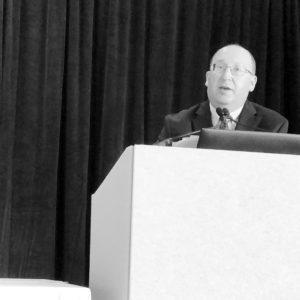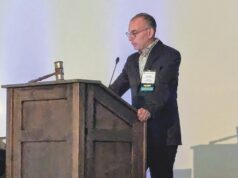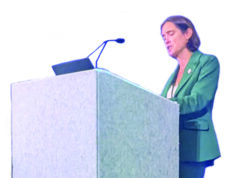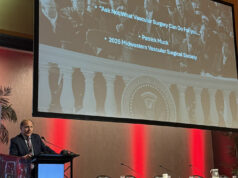
How to find “flow” and motivation through goal setting, and reacquainting with “intrinsic priorities” on the other side of the COVID-19 pandemic, formed the basis of the presidential address delivered by Alan Dardik, MD, at the New England Society for Vascular Surgery (NESVS) annual meeting in Cape Neddick, Maine (Oct. 15–17).
Dardik spoke of how the virus had highlighted the necessity of humility and actually harbored two pandemics: one of SARS-CoV-2 itself, the other “ignorance, stupidity and denial.”
Yet, as the pandemic rumbles on into the distant future, the Yale School of Medicine, New Haven, Connecticut, professor of vascular surgery posed the question of how to restart?
“How do we carry on?” Dardik asked the NESVS gathering. “How do we establish our new normal? Indeed, what is normal now? How do we get back to our lives? Do we want to go back to our previous lives? How do we determine what are our new lives and habits? How do we restart?”
Quoting the book Drive by Daniel Pink, Dardik pondered its practical lessons for life in a post-COVID-19 world. “We must set our own goals and remember our own intrinsic priorities,” he said. “For us, New England vascular surgeons, I believe this is relatively straight forward: Be the best surgeon you can be. Do not focus on your compensation, but remember why you entered this noble, revered, sacred profession: to help others and advance the art and science of healing for patients with vascular disease. In these paths, nothing has changed during the pandemic; we need to continue to focus on our goals and direct our own lives; this is autonomy. We need to extend and expand our capabilities, mastery. And we need to live a life of purpose.”
Dardik turned to the concept of “flow,” describing it as a state of being “totally invested” in an experience without consciousness of time—such that “if you have lost track of the time during this address, then you are in flow right now,” he told those gathered.
“As surgeons we all feel flow when the operation goes, and seven hours pass without a thought or an attention to the phone ringing or even an urge to eat or pee; it is why we are all terrible judges of the time we spend in the case,” Dardik explained. “It is what we all hope to feel, and what my father told me is the best part of the day. I also tell my students that operating is truly an escape from the outside world and a sincere pleasure. My wife can tell from the look on my face when I come home what I was doing that day; being a surgeon in the operating room, in flow, helping another person through their vascular issues, saving limb and life. This is why we all do this.”
To the question of restarting then? He offers not an answer but a suggestion: Get into the operating room and get lost in flow. “If you do not spend much time in the operating room or with patients, as some career directions sometimes evolve, then find your activities that give you flow,” Dardik said.
“Identify when you are naturally in your flow state. Learn how to get into it by working backwards. Understanding the benefits of flow can reinforce the habit. And start trying to shift into your flow state on purpose. Time is our most precious commodity. We cannot invent more of it. We can make more money, exercise to gain strength, even make or adopt or marry into more family members. We can buy another home and certainly fill it with more ‘stuff.’ We can learn a new skill. But we cannot make more time.”
The quest to continually reinvent vascular surgery to provide empathetic, patient-oriented, and personalized care to patients carries on regardless, Dardik added. “We can restart our lives not after the pandemic, but right now, as the pandemic continues. We can achieve flow and all else will follow.”












